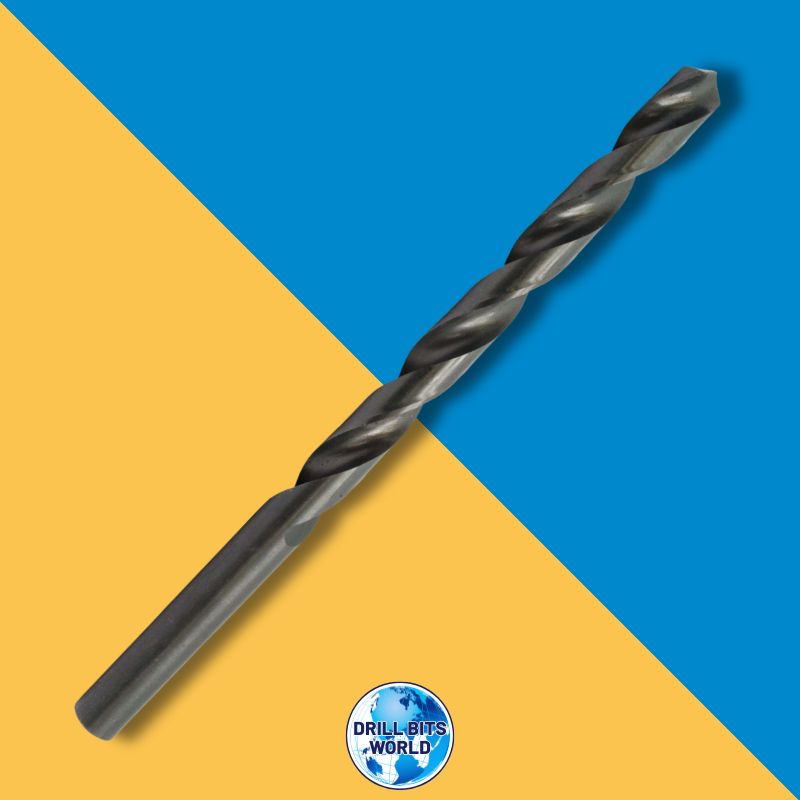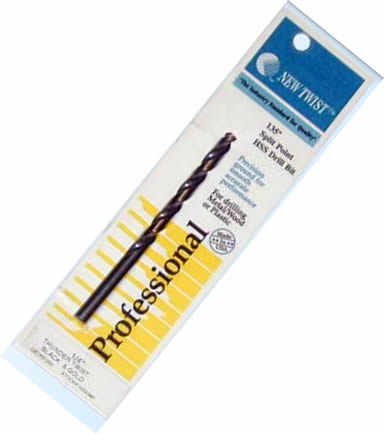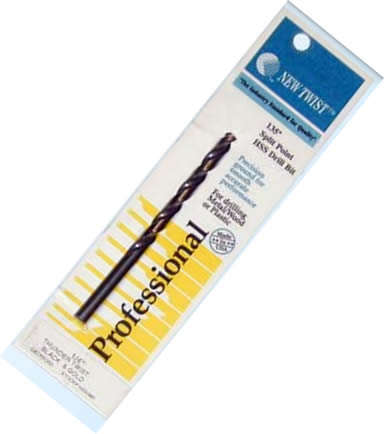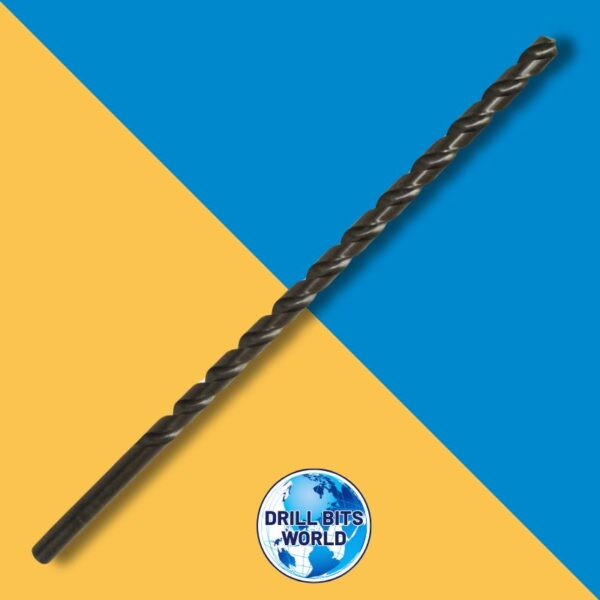
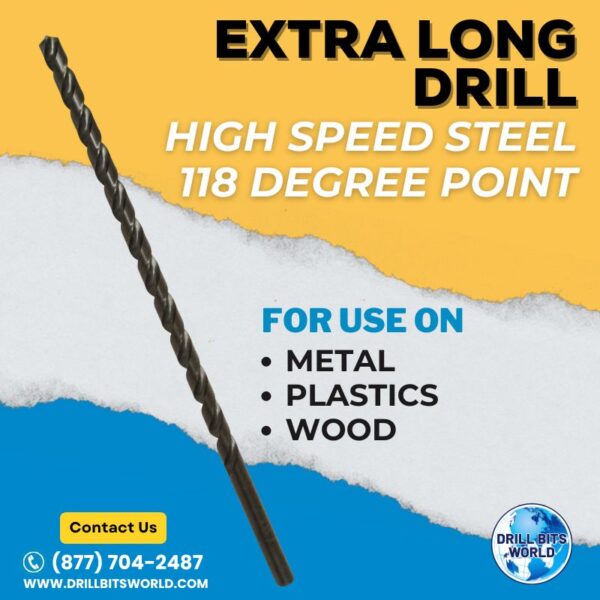



Extra Long Drill Bit – 24″ Overall Length
$27.35 – $183.99Price range: $27.35 through $183.99
- Description
- Additional information
- FAQ's
Description
24 Inch Drill Bit for Professional Deep Drilling
The 24 inch drill bit is built for tough, hard-to-reach tasks. Made from high-speed steel with a 118-degree point, it delivers smooth, precise holes. Its rugged design works in both portable and machine drills, excelling in deep drilling through high-tensile alloy steels.24 HSS Extra Long Drill is Built with Strength and Versatility
This tool works in both handheld and fixed spindle setups, delivering the durability and reach professionals need. The extra long drill bit straight design ensures clean performance, while a long drill bit straight shank provides compatibility with multiple drill types.
HSS Extra Long Drill Bit for Heavy-Duty Jobs extra long drill bit straight
For extreme depth, the extra long hss drill bit offers the toughness for repeated use. Models like the 24″ hss extra long drill excel in demanding jobs, making them a trusted choice for contractors and industrial users.
What size drill bit is 24?
A #24 drill bit measures 0.1520 inches in diameter, or about 3.86 mm. It’s often used for tapping #10-24 screws in metalworking and precision drilling.
What is the longest drill bit I can get?
The longest standard drill bits available are extra long drill bits, which can reach up to 36 inches in length. For specialized industrial work, custom bits may be manufactured even longer.
What is the biggest drill bit size?
In general use, drill bits are available up to about 1-1/2 inches in diameter for handheld drills. In industrial and construction settings, specialized boring bits and augers can exceed 6 inches or more in size.
What is the hardest drill bit you can get?
The hardest drill bits are typically made from tungsten carbide or cobalt HSS (high-speed steel). Carbide bits are extremely durable and excel at drilling through hardened steel, tile, masonry, and other tough materials.
Additional information
| Diameter Size | Various (See Above) |
|---|---|
| For Use On | Metal, Plastics, Wood |
| Flute Length | Various (See Above) |
| Overall Length | 24 |
| Size Type | Fractional |
FAQ's: Extra Long Drill Bits
Do extra long drill bits come in metric and inch sizes?
admin2025-08-10T15:18:06+00:00Yes—available in both measurement systems depending on the application.
What’s the best speed for drilling with extra long bits?
admin2025-08-10T15:17:43+00:00Slower speeds for larger diameters and harder materials, higher speeds for small diameters in softer materials.
Can extra long drill bits be resharpened?
admin2025-08-10T15:17:19+00:00Yes—if they are HSS or cobalt. Carbide-tipped versions may require professional sharpening.
What is the difference between an aircraft extension bit and a jobber length bit?
admin2025-08-10T15:16:50+00:00Aircraft extension bits are much longer and designed for deep or hard-to-reach drilling, while jobber bits are standard length for general drilling.
How do you store extra long drill bits?
admin2025-08-10T15:16:01+00:00Use protective sleeves, racks, or cases to prevent bending and tip damage.
Do extra long drill bits break easily?
admin2025-08-10T15:15:38+00:00They can if misused—avoid side pressure, excessive speed, or forcing the cut.
How do you prevent an extra long drill bit from wandering?
admin2025-08-10T15:15:02+00:00Start with a short pilot hole using a standard-length bit, then switch to the extra long bit for full depth.
Can you use extra long drill bits in a hand drill?
admin2025-08-10T15:14:23+00:00Yes, but longer bits flex more—keep speeds moderate and apply steady, even pressure.
Can extra long drill bits drill metal?
admin2025-08-10T15:13:35+00:00Yes—use cobalt or carbide-tipped versions for hard metals like stainless steel, and apply lubrication.
What materials are extra long drill bits made from?
admin2025-08-10T15:12:53+00:00Typically high-speed steel (HSS) for general use, cobalt for hard metals, and carbide-tipped for masonry or abrasive materials.
What are extra long drill bits?
admin2025-08-10T15:06:59+00:00Drill bits with an extended flute and shank length designed to reach deep or hard-to-access areas while maintaining hole accuracy.
Why do people use long drill bits?
admin2025-08-09T16:34:18+00:00Long bits are used to drill through thick materials, reach into tight or recessed areas, or pass through multiple layers in one go.
What do you call a long drill bit?
admin2025-08-09T16:33:48+00:00They’re often called “extra long drill bits” or “jobber-length,” “ship auger,” or “aircraft extension” bits depending on the design and purpose.
Is there a drill bit extender?
admin2025-08-09T16:32:34+00:00Yes. Drill bit extenders hold the bit securely and add extra reach—great for tight spots or deep holes.
How to extend the length of a drill bit?
admin2025-08-09T16:31:38+00:00You can use a drill bit extender or flexible shaft attachment to add reach without buying a new bit length.
Can you get extra long drill bits?
admin2025-08-09T16:30:41+00:00Yes. Extra long bits are available in various types—twist, auger, spade, and ship auger—ranging from 6 inches up to 48 inches or more.
Are longer drill bits better?
admin2025-08-09T16:29:32+00:00Not always. Longer bits reach deeper spots, but they can flex more and may be harder to control. Use the shortest bit that still gets the job done.



